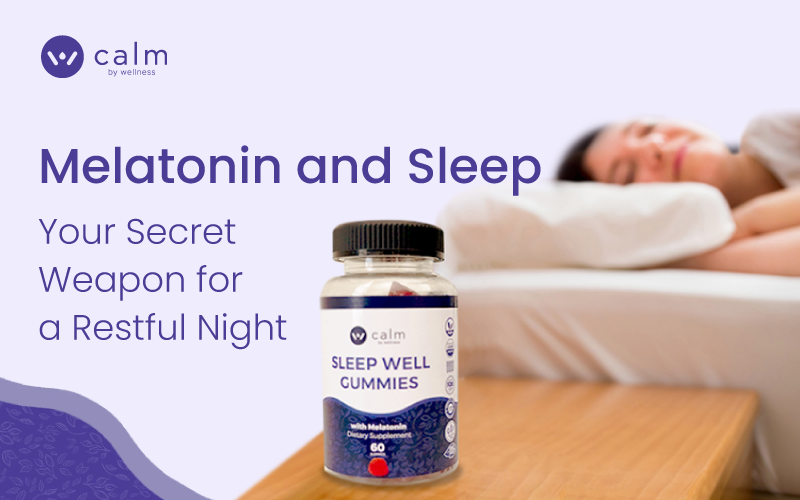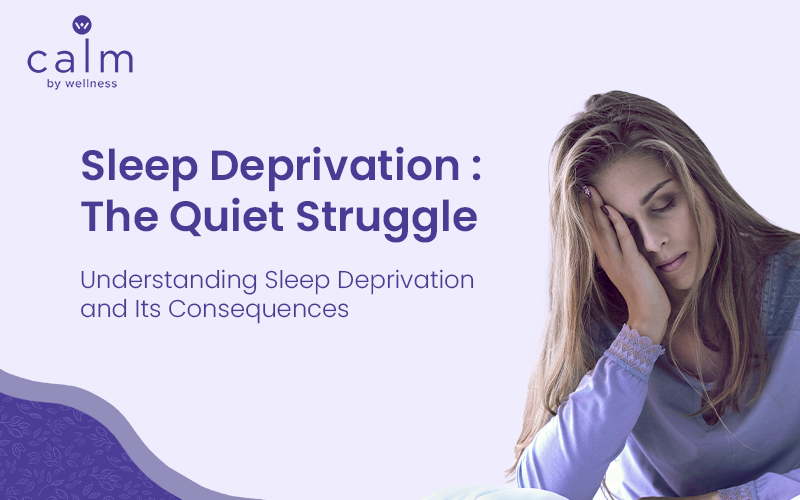
Maximizing Your Sleep Quality with Melatonin
A good night’s sleep is crucial for your health and overall well-being. It’s when your body rests, repairs, and recharges, prepping you for the day

In our hustle-centric world, where productivity reigns supreme, there’s a silent adversary that often goes unnoticed: sleep deprivation. It’s a pervasive issue that quietly sabotages our physical, mental, and emotional well-being. As a health and wellness brand committed to holistic health, it’s crucial to shed light on this overlooked problem and empower our customers to prioritize their sleep for a happier, healthier life.
Understanding Sleep Deprivation
Sleep deprivation happens when we consistently don’t get enough sleep. It could be due to our lifestyle, work demands, or even underlying sleep issues. Sleep isn’t just downtime; it’s a vital process crucial for our body’s health and functionality.
What You Should Know About Sleep Deprivation
The Toll of Sleep Deprivation
Let’s break it down: when you don’t get enough sleep, your body doesn’t have adequate time to rest and repair itself. This can lead to a cascade of negative effects on your physical, mental, and emotional health. From decreased cognitive function and impaired decision-making to weakened immunity and increased risk of chronic diseases, the consequences of sleep deprivation can be far-reaching and severe.
Understanding the Difference Between Sleep Deprivation and Insomnia
You’ve probably heard the terms “sleep deprivation” and “insomnia” thrown around interchangeably, but they’re not quite the same thing. Sleep deprivation is about not getting enough sleep due to external factors like lifestyle choices or work demands. Insomnia, on the other hand, is a sleep disorder characterized by difficulty falling asleep, staying asleep, or experiencing restorative sleep, often linked to underlying psychological or physiological issues.
Key Differences
Why Should You Care About Sleep Deprivation?
While Sleep Deprivation may seem harmless to sacrifice a few hours of sleep for that extra episode of your favorite show or to meet a deadline, the truth is, sleep deprivation can have serious repercussions for your health and well-being.
Signs and Symptoms of Sleep Deprivation
If any of these symptoms sound familiar, it might be time to take a closer look at your sleep habits and make some changes to prioritize rest and rejuvenation.
Management and Treatment for Sleep Deprivation
While there isn’t a magic cure, there are ways to manage sleep deprivation. Here are steps you can take to manage sleep deprivation and improve your sleep quality:
Preventing Sleep Deprivation
Of course, the best way to deal with sleep deprivation is to prevent it from happening in the first place. Here are some tips for getting the rest you need and avoiding the pitfalls of sleep deprivation:
Conclusion
Sleep deprivation is a serious issue that can have profound effects on your health, well-being, and quality of life. By understanding the causes and consequences of sleep deprivation and taking proactive steps to prioritize sleep and manage stress, you can protect yourself from its harmful effects and enjoy the numerous benefits of restorative sleep. Remember, sleep isn’t a luxury—it’s a necessity for your overall health and vitality. So make sleep a priority in your life and reap the rewards of a well-rested mind and body.

A good night’s sleep is crucial for your health and overall well-being. It’s when your body rests, repairs, and recharges, prepping you for the day

Magnesium is an essential mineral that plays a crucial role in our bodies. It supports muscle and nerve function, helps regulate blood pressure, and maintains

Memory is key to navigating life, helping us remember experiences and connect with others. Diet, sleep, and exercise all play a role in our memory,

As the world blossoms into spring, it’s time for us to shake off the winter blues and embrace the energy of the season. With longer

Cannabidiol (CBD) has become a popular wellness trend. From calming oils and sleep-inducing gummies to convenient capsules, it seems CBD has infiltrated every corner of

Calm by Wellness is the most recommended CBD & Delta-8 oil in the world. Trust our verified 5 star reviews and testimonials. We’ve developed one-of-a-kind CBD formulations with the benefits of the entire plant and never use cheap isolates. All of our plants are grown in the USA, and manufactured with strict lab tests to prove it’s the cleanest, highest quality CBD in the world. Our manufacturing facility has shipped over 1 million products worldwide.
Calm by Wellness
609 Deep Valley Dr. Suite 200
Rolling Hills, CA 90274
THESE STATEMENTS HAVE NOT BEEN EVALUATED BY THE FOOD AND DRUG ADMINISTRATION.
THIS PRODUCT IS NOT INTENDED TO DIAGNOSE, TREAT, CURE, OR PREVENT ANY DISEASE.

Calm by Wellness is the most recommended hemp CBD oil in the world. Trust our verified 5 star reviews and testimonials. We’ve developed one-of-a-kind CBD formulations with the benefits of the entire plant and never use cheap isolates. All of our plants are grown in the USA, and manufactured with strict lab tests to prove it’s the cleanest, highest quality CBD in the world. Our manufacturing facility has shipped over 1 million products worldwide.
Calm by Wellness
609 Deep Valley Dr. Suite 200
Rolling Hills, CA 90274
[email protected]
THESE STATEMENTS HAVE NOT BEEN EVALUATED BY THE FOOD AND DRUG ADMINISTRATION.
THIS PRODUCT IS NOT INTENDED TO DIAGNOSE, TREAT, CURE, OR PREVENT ANY DISEASE.